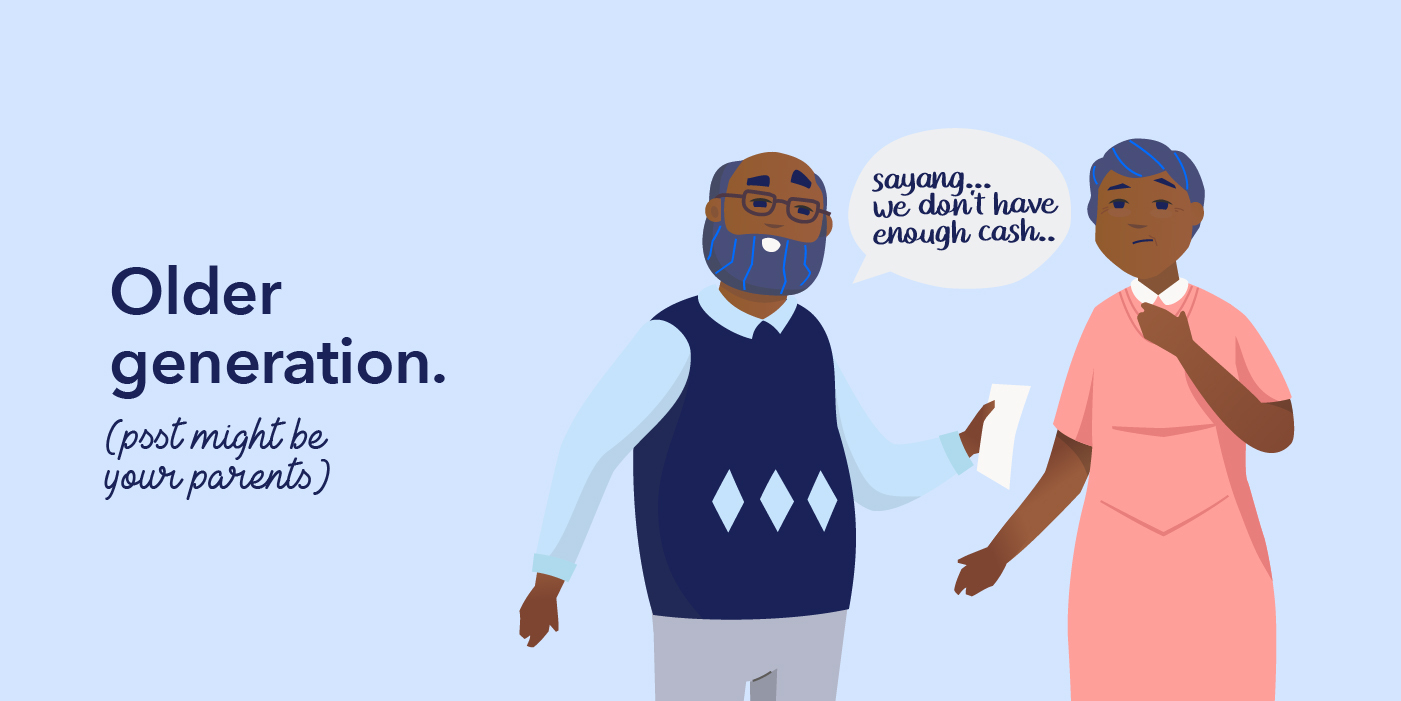Taking on a mortgage is one of the most important aspects of owning a home. Given the high cost of buying a home, mortgages allow us to pay for our houses in instalments. And for most people, they form the majority of their monthly expenses.
The high cost can put people at risk of overleveraging themselves, taking on debts beyond their capabilities. Which is why there are requirements to meet when taking on a mortgage, such as the TDSR and MSR.
TDSR
Short for total debt servicing ratio (TDSR), it refers to the portion of a borrower’s gross monthly income that can be used to service monthly debt obligations. It encompasses all types of loans, including property loans, student loans and credit card debt.
The requirement was first introduced in 2013 as a form of cooling measure to make it harder for people to take on loans for their property purchase.
The TDSR works by limiting the amount of income that’s used to service debts to 60%. For instance, if your salary is S$10,000, you can only use up to S$6,000 to pay your monthly repayments, including home loan mortgages.
Since it covers all types of loans, it’s also applicable for home loans for public and private housing.
MSR
Another requirement to take into account is the mortgage servicing ratio (MSR). MSR refers to the portion of a borrower’s gross monthly income that can be used for property loans only and is capped at 30%.
With a salary of S$10,000, this means that only S$3,000 can be used to pay the monthly instalments of your mortgage.
Unlike the TDSR, the MSR is only applicable for home loans for HDB flats and Executive Condominiums (EC) bought from developers.
Despite the TDSR and MSR, there have been cases where people find themselves having difficulties paying off their mortgages, especially for first-time home buyers. And some find that they’re taking on debts beyond their means.
In this article, we break down the common mistakes that people make when paying off their mortgages, so that you can avoid them.
Mistake #1: Not understanding mortgage terminologies & fine print

This tends to happen among students planning for their first BTO. As they don’t have prior experience in big-ticket purchases such as a property, they may find the mortgage terminologies and fine print cheem and hard to understand. This can put them at risk of making poor financial decisions, affecting their cash flow.
For instance, they may focus on choosing a home loan with the lowest interest rates. Since banks tend to carry home loans with lower interest rates, these students may end up signing up from the bank.
While taking a bank loan can mean lower monthly instalments, the trade-off is getting less financing. A bank loan can only finance up to 75% of the flat’s value, as compared to 90% for HDB loans. Then there’s also the 25% downpayment, 5% of which needs to be paid in cash.
And once they sign up for a bank loan, they cannot refinance to an HDB loan.
To avoid making such a mistake, be sure to consult a mortgage consultant before signing up for a loan, especially if you’re unfamiliar with the terms. Doing so can help you understand better what you’re signing up for.
Mistake #2: Choosing a shorter mortgage tenure

A common mistake among young couples buying their first home is opting for a shorter tenure for their mortgages.
This is understandable, since taking a loan with a longer tenure translates to higher interests to be paid. So technically, going for a shorter tenure can help to save costs.
On the other hand, doing so means that they have to pay a higher instalment every month. This can lead them to struggle to pay off their mortgage. If their repayments aren’t managed well, they risk losing their property.
For huge loans such as mortgages, it’s recommended that you take a longer tenure. While it means higher costs in the long run, it can help spread out the cost, making repayments more manageable.
Be sure to consult a mortgage consultant before deciding on the home loan to take. By taking into account factors such as your spending habits and monthly expenses, they can help you plan your finances and find a mortgage that suits your needs.
With prudent financial planning, you don’t have to worry about not being able to pay off your mortgage. It also ensures that you’ll have emergency funds to fall back on in times of crises.
Mistake #3: Taking on too many debt obligations

This issue is usually seen among those who are planning to buy a second property. Many young couples think that once their MOP is over, they can buy a new condo to invest in and earn some rental income. There’s this misconception that doing so can cover the mortgage instalments and make some money out of renting out their property.
However, on top of the mortgage for the second property, there’s still the instalments for the first property. There are additional costs that go into buying a second property as well. This includes the Buyer’s Stamp Duty, Additional Buyer’s Stamp Duty, property tax, maintenance and renovation.
All these put them at risk of failing to pay off their mortgages. As they incur more debt, their credit scores suffer. Consequently, a bad credit score can affect their next loan application, making it harder to have access to loans in future.
The good news is that there’s a way to deal with this. You can approach your bank and request a different mortgage package with a lower interest rate. Repricing your mortgages can help you reduce your costs and manage your repayments better.
Alternatively, you may reach out to a mortgage consultant to refinance your home loans. Instead of going from bank to bank on your own, the consultant will provide you with various options from different banks to help you find one that can lighten your financial burden.
Mistake #4: Having too much cash locked up in the property

A phenomenon that’s becoming prevalent among older people in Singapore is being asset-rich and cash-poor. Due to over-investment in property, after they’ve paid off their mortgage, they end up with limited cash savings for their retirement.
One solution to tackle this problem is HDB’s Lease Buyback Scheme, which allows seniors to monetise their flat while they continue living in it. By allowing them to sell off part of their flat’s lease back to HDB, they get monthly CPF payouts in return throughout their remaining years.
On the flip side, there are strict eligibility criteria to be met. For instance, the HDB flat must have at least 20 years of lease remaining. It also cannot be a short-lease flat, HUDC or EC.
Some are less inclined to downsize or sell their properties to cash out as they don’t want a change in the environment in their golden years. But with insufficient savings for their retirement years, they end up facing financial difficulties.
Regardless of your age, it’s good to get professional advice to avoid becoming asset-rich and cash-poor. Not having too much cash locked up in your property can pave the way for a more comfortable retirement plan.
If you find yourself facing these issues, don’t worry. Book a consultation with a 99.co mortgage consultant, and they’ll be more than happy to assist you with your mortgage.
Not sure if you should take an HDB or bank loan? Read this article.
Looking for a property to buy or rent? Find your dream home on Singapore’s largest property portal 99.co!
The post Common mistakes you’ll want to avoid when paying off your mortgage appeared first on 99.co.

